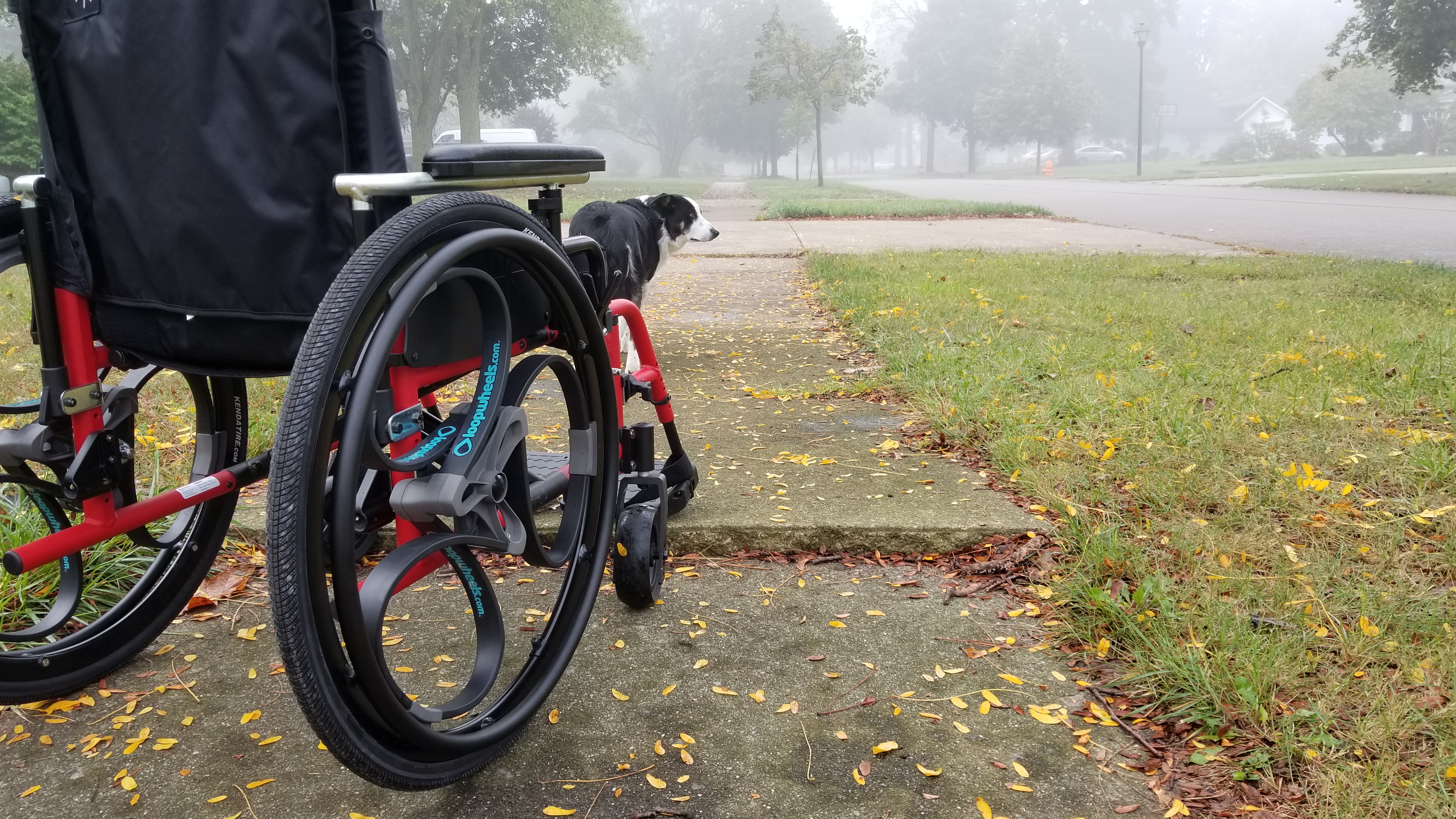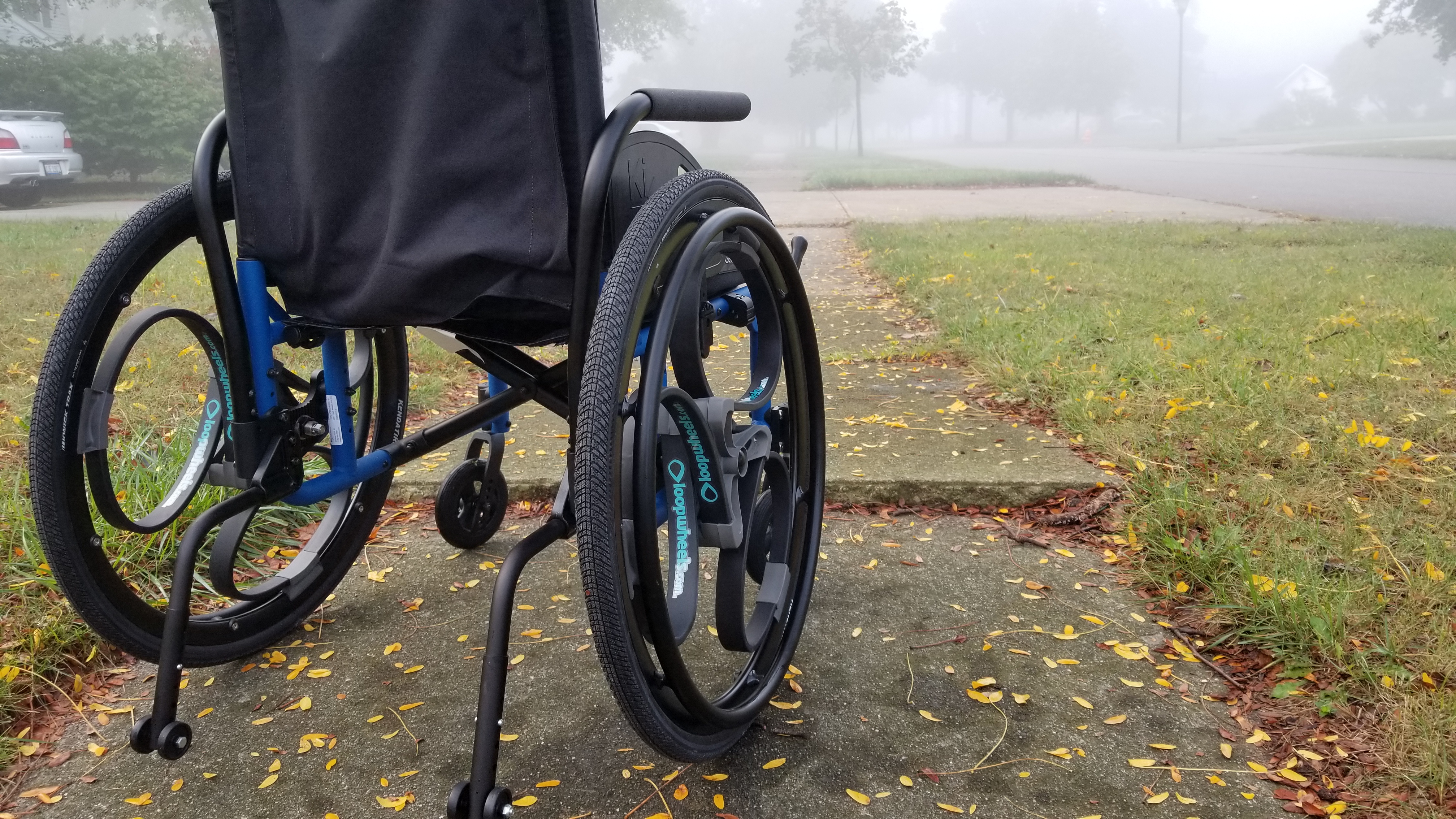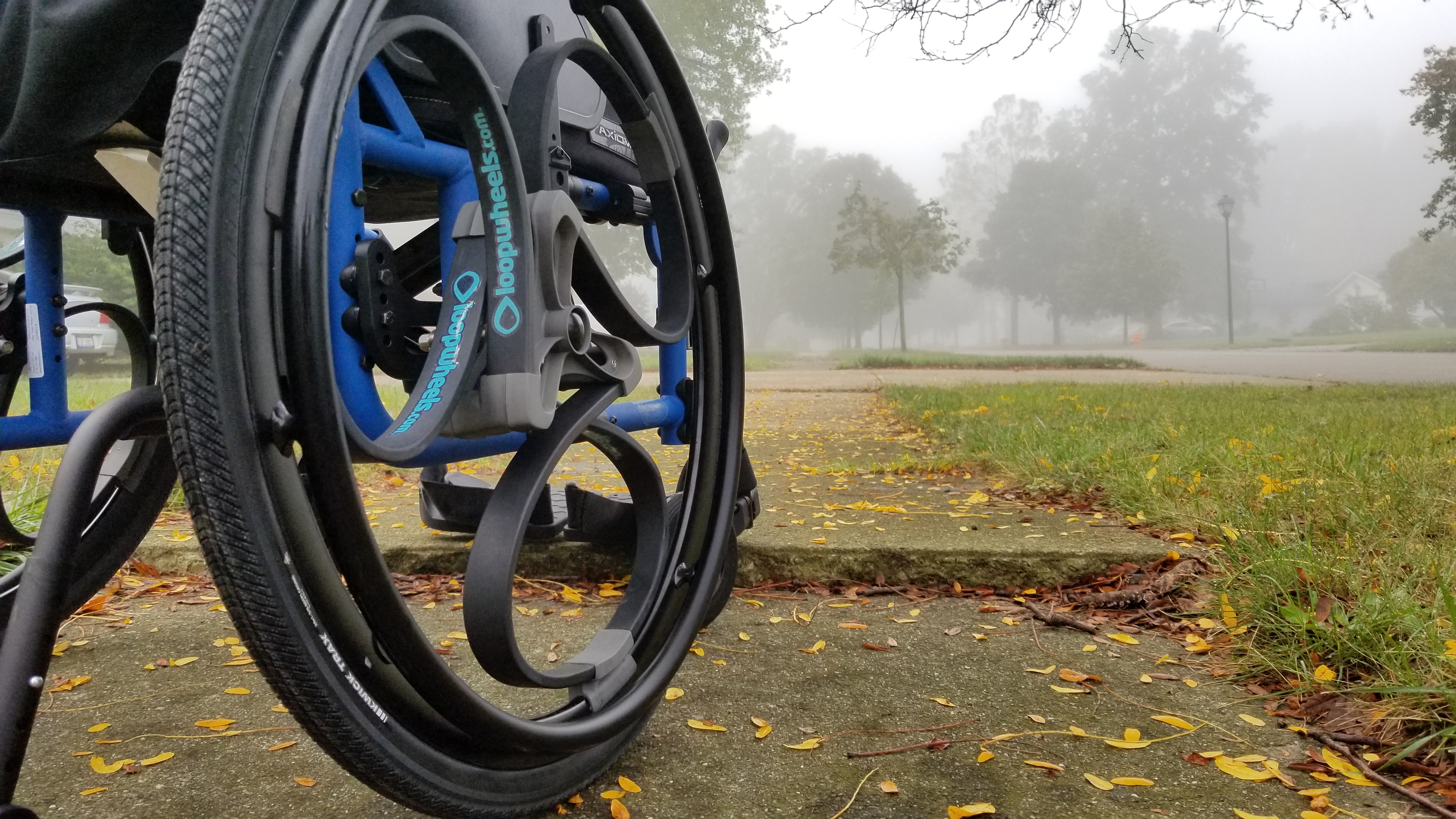Currently, this is just a concept with renderings, no prototype or production is planned.
Hollow kingpin sandwich caster Material: PP wheel bonded to elastic rubber Size:100mm x 32mm ; 125mm x 35mm Load:110kg,150kg Bearing: Roller Bearing Purpose:Shock resistant casters,Shock proof casters,Industry caster wheels,trolley casters
.
You are currently viewing our boards as a guest so you have limited access to our community. Please take the time to register and you will gain a lot of great new features including; the ability to participate in discussions, network with other RV owners, see fewer ads, upload photographs, create an RV blog, send private messages and so much, much more! Personally I don't like to lift wheels off the ground with the jacks and I would never lift the drives off the ground. If it's so unlevel that the wheels would be off the ground, I'll run up on some boards first to get close, then finish leveling with the jacks. Fronts are ok. You won’t damage anything. As stated above, never the rears (drive wheels) because the parking brakes are on the rears. If you’re not comfortable with the fronts being off the ground, you can build some small ramps or wood blocks you can drive the front wheels onto. If you search for ramps on this forum you’ll find lots of examples. When an air bag RV is lifted, ONLY the axle weight is left on the ground. no matter the lift height. This is unlike a leaf or coil spring vehicle. The tires provide limited stopping. If the leveler pads are on softer ground, they will put much restriction to the RV moving sideways as the pads will be in a hole. The suspension system has no problem handing from the shocks / limit straps. It endures FAR greater stress while you are driving down the road soaking up the bumps and road heaves. All that being said, try to NOT lift the RV any further up than is required. Things inevitably break. Hydraulic lines, solenoids, seals etc. You don't want a single leg to drop on it's own which the torques the chassis. An RV up in the air is invitation to crawl underneath or store stuff under. Not good when something breaks. So, pick a more level spot or use blocks to get the rig as level as you can before lifting. Don't park on a hill and lift so that there is no chance of slipping sideways (tire and / or leveling pad friction). Your drive axle (brakes) always have to be on the ground... else you'll go down hill as soon after you've walked bow to stern inside the coach a few times... I don't like to lift either off the ground ever. I only use the jacks enough to level the final little bit and to not have the coach shake while moving around in it. The thread Sonic posted is great! I use 2x10s like suggested in the posted link, but took it slightly further. I didn't cut an angle, don't really need it and in the past I found that it sometimes gives them the ability to slip while driving onto them. I would post pictures but it is in the shop for engine repair and the boards are in unit. Basically I took 2x10s and cut 2 boards the longest that would fit in the bay I was storing them in (about 36 inches long). I then cut 3 more boards about 8 inches shorter (for a total of 4 boards high), so lenghts of, 12, 20, 28, 36 long. I have 2 sets in case there is a need for the rear duals to go on boards. To keep the boards from sliding when driving onto them, I bought 3 different size carriage bolts that would go through 2, 3, or 4 boards but not all the way through, just long enough to keep them stable as you drive. I then took a spade bit that was 1/8 inch larger than the bolts and drilled through all 4 boards to accommodate the bolts, i did this in the rear where they would line up even and no worry about puncturing tires if they popped up slightly. I then took a spade bit slightly larger than the bolt head, and drilled on top of the holes the thickness of the bolt head. This way they sit down flush with the boards. It works very well! For the jack pads, I couldn't use anything very thick, as if I am on level ground and I dump the air, I only have about 4 inches between the jack pad and ground. I took 2x4s, and cut them the length of 3 2x4s put next to each other. I cut 6 in total. I then laid them crossways (think the first 2 layers of Jenga) and nailed them together from both sides. These work great for leveling! When i get it back from the shop next week I will try to remember to post some pictures. Your drive axle (brakes) always have to be on the ground... else you'll go down hill as soon after you've walked bow to stern inside the coach a few times...
And by 100 MPH Bicycle, Donhou Cycles really means Bicycle That Has Peaked at 60 MPH on the Open Road but Could Theoretically Make It to 100. I'm not sure how that theory was developed. I think it's how fast frame builder...
Much like their wheelchair design has made it easier and more comfortable for users to get around in an urban environment, SoftWheel hopes the Fluent wheel can do the same thing for cyclists. The way they describe how the wheel absorbs shocks claims that they are especially effective at abrupt sharp edge obstacles like riding up and down stairs. Since the rim can variably move in the direction of each impact (as opposed to a typical fork which can only telescope up and down, or a rear suspension setup which is confined to the axle path determined by its layout), it is better suited to the wide range of actual impacts your normally encounter.
"Price on application." Not good news for anyone who wants Extans' Akhal Shadow Bike for anything more than a pipe dream. Or a photo on their desktop. But even as the latter, you have to admit this bike, inspired by the...

Durable aluminum frame: Built to last, our kick scooter is made with a high quality aluminum frame, stainless steel alloy & adjustable T-type locking handle bar.
If you want the most functionality and lowest possible clearance, check out an air ride kit. This is one of the most sought after modifications in the lowered car community. Air suspension systems allow you to dial in your fitment perfectly and raise or lower the car from the push of a button. Air suspension kits use air pressure to adjust the height of your car on command. Speed bumps are no longer a problem!

New 8" x 2" (200x50) Heavy Duty Wheel (Each) for Jazzy, Pride, Jet Power and Many Other Standard Wheelchairs. Firm Tread for Easier Rolling (Grey). 5/16" (8 mm) Bearing, 2-3/8" (60 mm) Hub Width
Loopwheels fit most manual wheelchairs. Choose spoke colour, sticker colour on black wheels, add tyres and pushrim type.

Go forth with what my minions RockShox & Fox have created & do not question what you don’t understand. traildog on May 23rd, 2016 - 1:27am Vizinoz on May 21st, 2016 - 12:09pm Andrew on December 22nd, 2018 - 7:51am
The loopwheel was designed by company founder Sam Pearce, a product designer and mechanical engineer. The spokes have been replaced by a new interior that makes it easier to go over uneven or bumpy ground and removes vibration.

Next Next post: Burj residents sweat over developer threats to cut A/C and elevator services 6 thoughts on “Softwheel uses inner suspension arms to re-invent the wheel for bikes and chairs [video]”
Currently, Loopwheels is collecting pledges on Kickstarter to raise funding. Available pledges to reserve a wheel starts at £195.

'In 2007 I was sitting in an airport in Holland, and I noticed when a mother pushed a pushchair against a kerb, the baby was pushed forward. Morning, world! Breathtaking image of the first light of... A bright idea: The astonishing glow-in-the-dark GM plants...

If you have questions/comments for our guests and can’t watch live please feel free to respond to this post and I’ll try to ask for you during the show. And that’s not the only news – check out that rear hub in the photo! For more information, contact your nearest ICE dealer, and/or visit the ICE website: https://www.icetrikes.co/

Ready to start poppin' wheelies like a G6? This Indoor Wheelie Trainer - OK, technically DIY Indoor Wheelie Trainer - from The Q fuses a cycling trainer, some wood, and a tie-down strap into a lean, mean trick-teachin'...